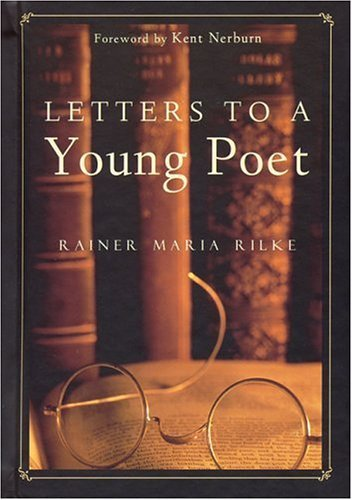The coolest advice I’ve ever read wasn’t on a meme-studded list or pseudo-psychological article on my newsfeed. It was written more than a century ago, nestled within the six-year correspondence between poet Rainer Maria Rilke and student Franz Kappus. Letters to a Young Poet is a collection of Rilke’s letters to Kappus, published a few years after Rilke’s death. Kappus, a melancholy student agonizing over what to do with his life, wrote to Rilke in 1902 asking for criticism on some of his poems. Rilke—ailing and travelling through Europe in search of respite—refused to critique Kappus’s work. Instead, he substituted endearing observations about art and life in general for trite criticism, initiating an epic conversation between himself and Kappus.
What’s so striking about Rilke’s letters is the way he deftly teases out Kappus’s tensions. This is mostly conjecture, but I suspect that Kappus, like many young people, yearned to do something meaningful with his life, something he loved, that would contribute in a substantial manner to the world around him; to understand himself, to be someone. And Rilke not only grasps these anxieties but soothes Kappus’s fears, he instantly dismisses the notion that everyone must be a writer or artist (in fact, he says it’s absolutely fine if that’s not your thing: put down your MacBook, stop gnawing on stubby pencils in a slightly ironic fashion, and try something different), instead focusing on the ways Kappus (and every millennial) can learn to develop his own opinions, understand himself, and make his own choices.
Rilke urges Kappus to avoid popular opinions and prestructured ways of observing the world. He suggests that people ought to take time to be still and, in solitude, question themselves, slowly developing personal tastes and opinions based on deep contemplation. In modern-day terms, Rilke essentially says, stop letting your newsfeed determine how you feel about stuff. Ask yourself what you really want, how you really feel, and trust your inner judgment.
He encourages Kappus to embrace hard things and hard emotions, to expect that sadness has its rewards and that doing difficult or uncomfortable things will expand his abilities: “How can we forget those ancient myths . . . the myths about the dragons who at the last moment turn into princesses? Perhaps all the dragons in our lives are princesses, only waiting for the day when they will see us handsome and brave?”
Rilke doesn’t just offer dollops of know-it-all information, he presents them as gentle interpretations anchored in his own experiences as an artist and his battles with various illnesses. Between his description of the cobbled streets of Rome, and Paris’s harried atmosphere, he urges Kappus to not be in such a hurry to define himself. Rather, he suggests that through experiences, through living out life’s questions, whether good or bad, the elusive answers will present themselves. “To be an artist [and I argue, to be an adult] means: to grow and ripen like a tree which does not hurry the flow of its sap and stands at ease in the spring gales without fearing that no summer may follow. It will come . . . Patience is all.”
Letters to a Young Poet is a tiny compilation, and Rilke’s notes are penned with such grace and eloquence that it’s easy to imagine him writing not to Kappus (who eventually became a soldier and an editor) but directly to the reader, offering what is possibly the best life hack ever: so accurate that a hundred years later, all of Rilke’s advice remains relevant.





